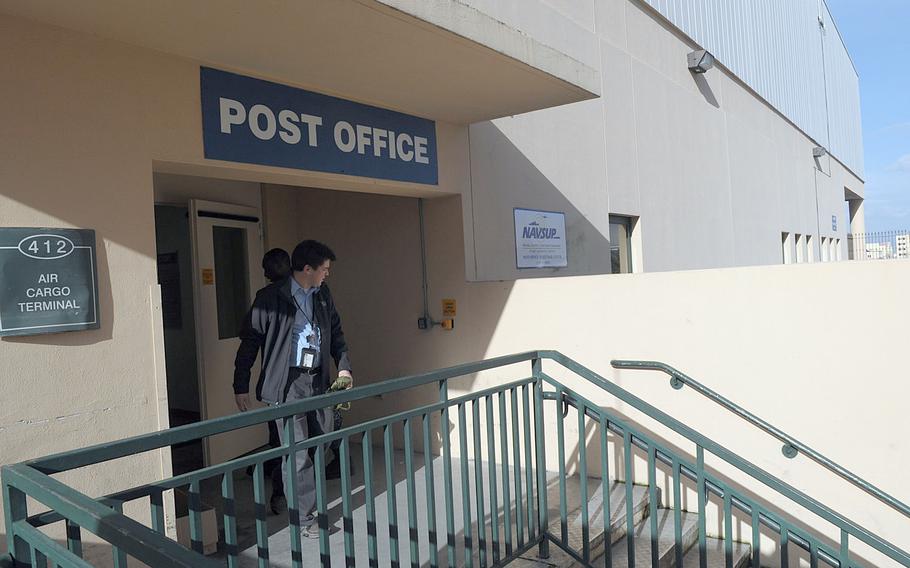Migration
Volume of mail prompted hold on packages to Italy, officials say
Stars and Stripes February 13, 2014

Italian customs officials held the packages last month after announcing that all incoming parcels bound for the U.S. military mail system would be subject to Italian taxes and customs duties. (Steven Beardsley/Stars and Stripes)
NAPLES, Italy — Concerns over the volume of incoming mail for U.S. military personnel in Italy spurred customs agents in Rome to put a hold on some mail for two days last month, an Italian customs official and a Navy base commander said Thursday.
Although the hold was soon lifted, Italian and American officials continue to discuss possible changes to the system under which parcels and other airmail are delivered via Rome — and whether they would mesh with basing agreements between the two sides.
The official, who works for the Italian customs agency, said the office is concerned by the larger volume of packages for individuals from online shopping.
He said customs agents were trying to “redefine the procedures” of distributing packages, but he emphasized they would not levy taxes or customs duties against them, as Navy officials say they were initially warned. Such fees are prohibited by basing agreements, said the customs official, who declined to be name because of the sensitivity of the issue.
The hold on American mail began abruptly in January as holiday packages were still arriving, according to Navy officials. Only packages entering the Rome airport, which feeds the military mail system for Navy bases in Naples and Sigonella, Sicily, were affected. Packages continued to enter the Army and Air Force system in Milan, another entry point.
The customs official said the number and nature of the packages received in Rome caused “chaos” in the Rome system.
Yet Navy mail officials in Naples say Christmas is always a heavy period for mail. The number of packages this past holiday season was roughly the same as the year before, a base spokeswoman said.
Customs officials agreed to resume processing the packages after meeting with Navy representatives, but they said the volume made it harder for them to police for violations, said Capt. Scott Gray, commander of the Navy base in Naples. They also continued to hold 27 packages.
Gray said he was given guidelines by the agency that referred to prohibited items as well as value-added taxes and customs duties that could be applied to any item worth more than 22 euros, or about $30.
The bases then passed that information on to their personnel. U.S. Embassy officials became involved in the discussion, as it relates to basing agreements between the two countries, Gray said. Customs officials recently released the 27 packages being held, without charge.
Gray, who is not directly involved in the ongoing discussions, says he believes the issue now is how to reassure customs official that the Navy is policing incoming items and informing personnel what can and cannot be shipped.
Some items in the customs guidelines are already prohibited by military mail rules Others, such as such as “footwear” and “apparel and sewn clothing,” likely account for a significant portion of online orders by U.S. personnel.
Also prohibited under the guidelines is a hodgepodge of very specific or obscure items, including “typewriter ribbon” and “roasted ground coffee.”
Gray said that, for now, things are back to normal as embassy officials work toward a long-term solution.
“Everybody’s being reasonable,” he said. “We’re resolving some interpretation issues and we think some of these issues will be resolved in the medium term. The mail has continued to flow, and no fees or customs duties are being applied.”
Cristina Woods contributed to this report.
beardsley.steven@stripes.com Twitter: @sjbeardsley